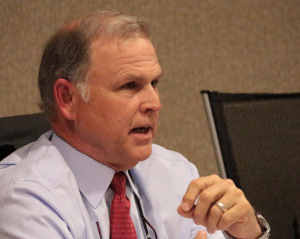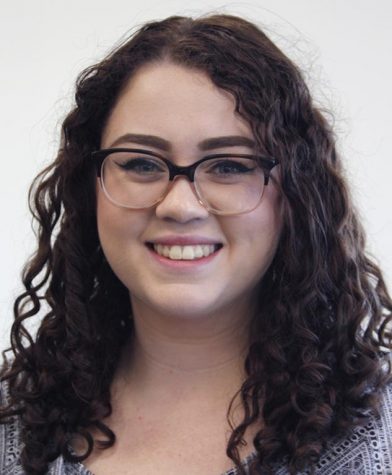
At a two-day Board of Regents meeting and retreat on Feb. 11-12, University President Suzanne Shipley presented a concept for a strategic plan to get feedback coordinated by a committee of yet-to-be-determined members.
“We want to start the committee with 20 priorities, give it to the campus and say, ‘Tell us what fits into those priorities for the next five years.’ That’s where people can put their hands up and say what they want to change,” Shipley said. “We’ll come up with objectives and plans for the university long term from those responses.”
The committee will be made up of about 12 members, including both undergraduate and graduate students, faculty, and staff. Betty Stewart, provost, will head the committee along with another academic, according to Shipley.
“Usually, we [Stewart and Shipley] go to Keith Lamb and ask him to help us select students for these kinds of committees. Sometimes we get them from the Senate, sometimes we get them from other areas, and other times we ask for volunteers,” Shipley said. “We’ll be putting that together within the next few weeks.”
Each of the 20 priorities falls under one of four rubrics: serving students, serving faculty and staff, serving the region, and serving academic programming. Shipley said that while there are many options for change, funding these options determines their priority.
“We saw a lot of options for the next five years, which may or may not happen based on funding,” Shipley said. “We could suddenly skip a step and go a different direction because somebody says, ‘I want to donate $40 million to do this.’ But you’ve got to have it in a plan before anybody knows how to fund it.”
Changes in directional vision from the previous campus plan caused controversy on campus because many believed the plans were set in stone.
“What’s irritating to me about rumors is that no one is talking to the right people. There’s so much guesswork associated with these projects at early stages,” Shawn Hessing, Board of Regents chairman, said. “As projects come into the horizon, that’s when you’ll see the actual formal votes.”
Five projects have been voted on and approved by the Board, including the new 224-space parking lot, new recreational playing fields, the mass communication building extension, the new health sciences and human services building, and the new residence hall.
“While those projects have been approved, none of the other long term plans have been yet,” Hessing said. “The Board feels really good about these five projects, because we do have some numbers associated with those.”
These provisional change decisions came from a combination of campus surveys, previous strategic plans, and personal recommendations, according to Shipley.
“President (Jesse) Rogers had focused the cabinet’s previous strategic plan to about 10 goals before he left, which we took and put out a survey for students, faculty, and staff to take,” Shipley said. “Every president sees an institution through different eyes. What you’ll see in this plan is what I think we can do next. It’s not a criticism of what has been done before; you can’t do the next part well if the past hasn’t been done well. It’s just saying at this point in time, this is what needs to be done.”
The five projects do not include fee increases, but future plans might, according to Shipley.
“The approved projects are all state-funded, so there won’t be any need for a fee increase,” Shipley said. “If we want a parking garage, the students will have to pay for it, so parking fees would go up fairly dramatically if it’s approved.”
After the usual meeting, the Board diverged by doing something different: a retreat.
“The retreat was something that Rogers had wanted to do, and Shipley wanted to do as well. The Board talked about a lot of things that didn’t necessarily need Board approval, but we definitely needed to be aware of,” Hessing said. “Conceptually, the difference is that we’re not voting. We’re just going through the process of getting information to the public.”
Shipley said the importance of having a retreat was to have more higher-level thinking than the typical Board meeting.
“A retreat is where you take time away from the everyday business and you talk about higher-level things that stretch into the future,” Shipley said. “At a Board meeting, you have all of these fairly rigid mechanisms, but the retreat was all about positioning Midwestern for the future. We could have a retreat on any topic, but it’s a limited topic within a limited amount of time where you’re not distracted by all of the business.”
Even though not every Board member always agrees with each other, their ultimate goal is to better the campus as a whole.
“There were some very differing opinions at that meeting, but we do our best. They’re a group that can disagree with each other and still walk out and be friends,” Shipley said. “They’re very interested in the good of the institution and they really care about the students.”

















